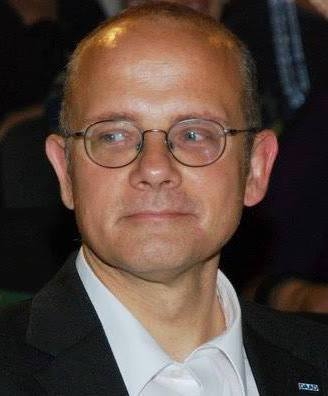I am grateful to Andreas Umland for providing, in his comment ( click here ) to my article "The Russophobia Card" ( click here ), a useful summary of points that are usually brought up in response to my and others’ arguments about Russophobia. Let me briefly respond to his three essential claims.
1. Putin-phobia should not be equated with Russophobia.
I agree that criticisms of Russia and its political system are entirely legitimate. The issue is how balanced such criticisms are and what political agendas are behind them. Russophobia is not merely a critique of Russia, but a critique that is beyond any sense of proportion and the one that is waged with the purpose of undermining the nation’s political reputation. I define Russophobia as a fear of Russia’s political system that is viewed as incompatible with the interests and values of the West in general and the United States in particular. This fear may be cultural or politically motivated or both. My definition is therefore broader than merely an irrational fear of Russia, and it encompasses both cultural and political expressions of a highly distorted critique of my country.
It is legitimate to be critical of Russia and its rulers, but it is equally important to be consistent and self-critical. For example, one cannot present Yeltsin as the father of Russian democracy and Putin as responsible for taking back all political freedoms given by Yeltsin. Any serious scholar understands that the view is a caricature, not an analysis, yet this is largely the view that is fed to the American public by the mainstream media.
The same sense of balance requires that those analyzing Russia place its transformation in a comparative context. Many, albeit not all, Russian problems are typical state-building problems that nations encounter, and they should not be presented as indicative of Russia’s “inherent drive” to autocracy or empire. Russia’s foreign policies in the former Soviet region, for example, are largely defensive and driven by desire to secure the nation’s large borders. If one compares Russia’s foreign policy record to that of the U.S. using the yardstick of imperialism and expansionism, the comparison is hardly going to be favorable to the United States.
2. Russia’s America-phobia is even more extreme.
America-phobia in Russia is indeed strongly present in media and cultural products. The phenomenon has some cultural roots, but is also a response to US policies of nuclear, energy and military supremacy in the world. Russian America-phobia is probably more extreme than America’s Russophobia, but not more extreme than American hegemonic and imperial discourse. Power imbalance makes the whole difference here. Extreme hegemonic policies tend to provoke an extreme kind of response, and Russian nationalist movements and commentators react to fears of further unilateral encroachment on Russia’s political system and foreign policy interests. One may call it paranoia, but even paranoid ones may have real enemies, as the saying goes. America-phobia in Russia will subside if and when Russia’s legitimate interests are taken into account and more cooperative and multilateral security regimes are devised in Europe, Eurasia and Middle East.
3. Russophobia will disappear when Russia is a democracy.
This I am afraid is a well-intentioned illusion. Russophobia that I describe is a product of a global power struggle, rather than merely a culturally embedded emotion or a dislike of Russia’s political system. Democracy or not, Russia is sure to provoke some highly negative reactions simply because its potential revival will be viewed as dangerous to certain elite interests. I acknowledge in my piece that many US politicians are driven by the larger objective to control world’s energy and geostrategic sites, rather than by Russophobia. Yet in today’s context of Russia’s growing potential to influence developments in Eurasia the two should not be viewed as separate. Politicians, such as Senator John McCain or Vice-President Dick Cheney, are advocates of American hegemony, but they sound like Russophobes in their public criticisms of Russia because they view it as an obstacle in achieving their foreign policy objectives.
After the end of the Cold War, the American elites have grown accustomed to not meeting a strong resistance to NATO expansion, and they have expected a largely free access to Russia’s energy reserves and nuclear sites. Keeping Russia weak remains essential for extracting from Moscow important concessions concerning energy resources, geostrategic location and political domination in Eurasia. It is not the first time, and certainly not the last one, that the highly distorted critique of the Kremlin dominates the Western media during Russia’s economic and military recovery. As this recovery continues and for as long as there is hope for Washington to unilaterally assert favorable geostrategic and energy conditions in Eurasia, we should expect more, not less, of Russophobic rhetoric.
Dr. Andrei Tsygankov is associate professor of international relations at San Francisco State University.




